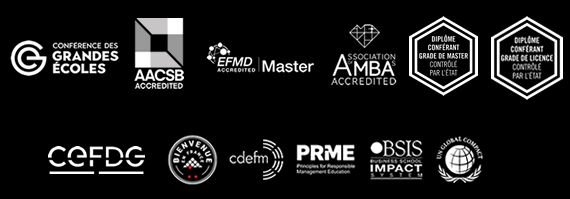When we talk about the future of any industry, our brains immediately fear the unknown, but in reality, it can also be positive. The future of supply chain management was forced to arrive sooner than expected due to the pandemic, leaving leading companies to either be ruthlessly affected or thrive within an unfamiliar logistical landscape.
What should we expect in the new future of 2022 and beyond for supply chain management? Let’s take a look at the major changes expected to unfold in upcoming years.
Greener Supply Chain Management
CSR and sustainability awareness are seamlessly being integrated into many industries, including infrastructure and logistics. A growing number of consumers prefer businesses that are dedicated to environmentalism, and managers are striving to address their concerns without risking their internal systems.
Green supply chain management refers to the concept of integrating sustainable environmental processes into the traditional supply chain.
This can include processes such as product design, material sourcing and selection, manufacturing and production, operation, and end-of-life management. As we’ve been witnessing the booming of “green consumerism”, everyone has their eyes on brands and businesses who are expected to implement eco-friendly supply chain approaches into their strategies and operations.
Elastic Supply Chains
Since 2019-2020, the world has witnessed how supply chain management had to be flexible, adaptive, and responsive for it to handle uncontrollable external factors and influences. It has become way bigger than a simple reduction of inventory and understaffing, but rather took a more organizational direction in responding to growing volatility in consumers’ behavior, all through “elastic” strategies.
The idea lies in the ability and willingness to expand capabilities that meet ephemeral demands. In fact, when we talk about elasticity, we can’t help but mention how useful it is when companies come to recognize supply chain execution as an end-to-end process rather than just a means to an end. When implemented successfully, an elastic supply chain can scale up or down, even with the most unanticipated patterns of demand. It can help to reduce costs, improve service, minimize risk and enhance a company’s competitive edge.
Production delays
Not all changes will be on the brightest of sides. Production delays for the past couple of years have made headlines, and things might not drastically change for the better anytime soon. Given the current situation, manufacturers are still to date competing for the limited supply of key commodities and logistical capacity, leading to consumers experiencing empty shelves and long purchase lead times.
This being said, looking at the glass half full, this issue has shifted the stakeholders’ attention towards evaluating and evolving their supply chain by investing in long-term strategies that will prepare them for the post-covid phase, whether back to normal or not.
With that comes plenty of risk evaluation while maintaining a competitive edge in this enormous and tough market.
A shift in the Workforce
The recent labor market shortages have further complicated the recovery for supply chain management and other industries alike. Whether it’s at an operational level or fieldwork, the shortage has been noticeable along with the skills and numbers that accompany each job position. This will lead to a shift towards relying on new technologies that have fundamentally changed the way supply chains operate at an international scale with modern operations focused on the latest innovations. We are not talking about it replacing the human resources and labor but rather a blend of both tech and human skills to sustain growth and prevent errors.
This merger has been implemented at the level of recruitment, where businesses are rethinking their approach to recruit and engage Gen Z, who will increasingly become part of the active workforce in the near future and add purpose to their professional goals. So how will they get ready for this industry? It’s never too early to have a global understanding of supply chains.
… So is it Too Early to Jump on the Bandwagon of Supply Chain Management in 2022?
EMLV Paris has recently introduced its latest programme: The MSc Supply Chain Management
The programme aims to develop advanced technical skills and places value on the Corporate Social Responsibility (CSR) principles and latest engineering industrial trends taught at ESILV. The four pillars of this programme are:
- Skills management (managing people, installing robots)
- Process & methods (lean, KANBAN, procedure, certification)
- Tools (materials, warehousing, robotization)
- Data (measuring performance – making it reliable & intelligent).
Taking into account societal changes and consumer expectations, this MSc aims to train graduates to propose and develop appropriate business models (short circuits, delivery and relay points, etc). As a future supply chain manager, you will be an agent of change mastering project management, focusing on collaborators (Kanban) or customers (Lean 6 Sigma). By mastering internationally recognized certification, you will acquire new skills, enabling you to improve the flow management of materials, goods, and people.
It’s time to take your managerial skills and aspirations to the next level!






















